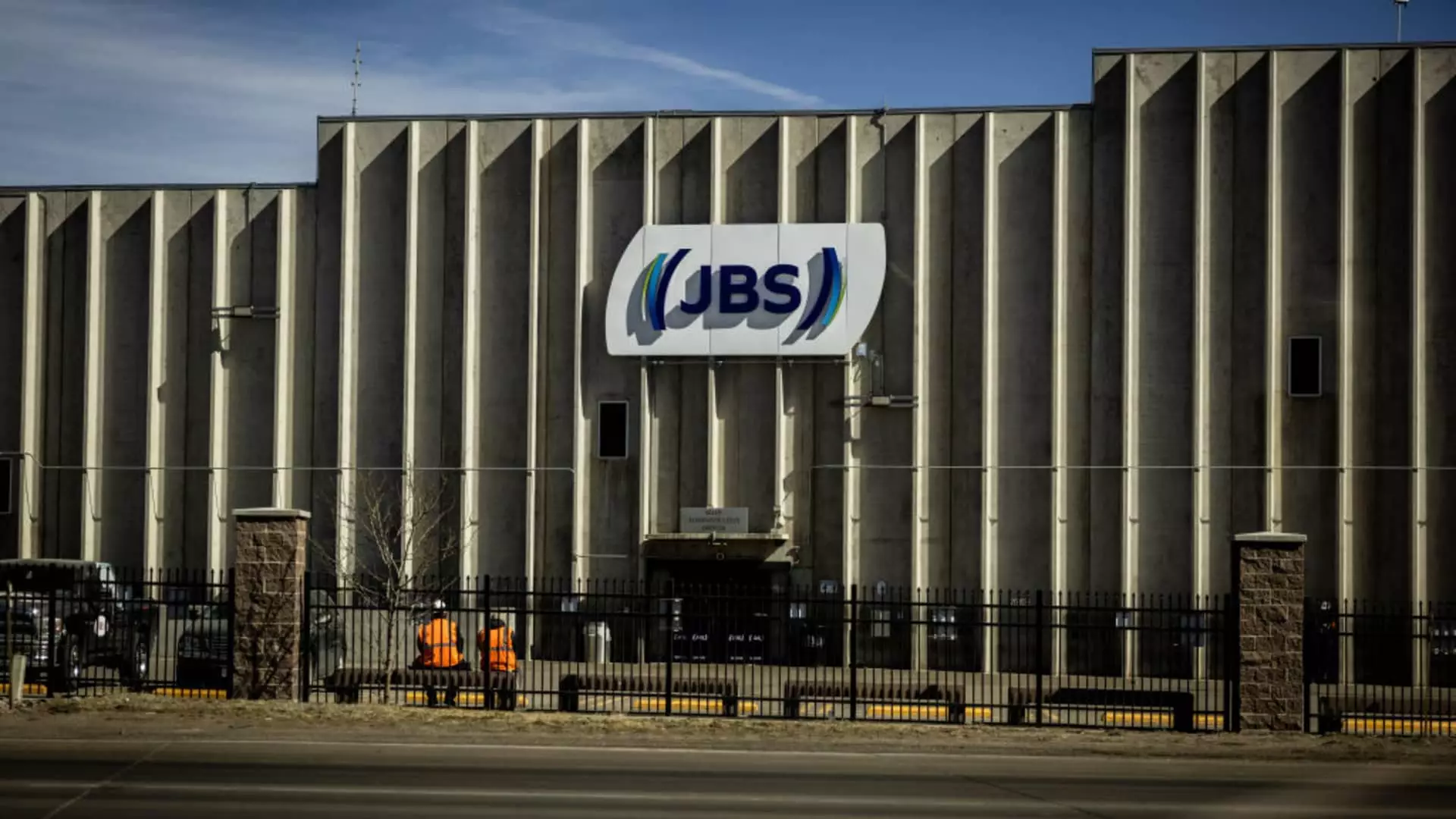Unraveling the Controversy: JBS Makes Waves in the Market with $30 Billion Valuation

On a pivotal Friday, Brazilian meat giant JBS made headlines with its much-anticipated entry into the U.S. public market, launching its shares at $13.65 each. With an opening valuation soaring to approximately $30 billion, JBS unseated rival Tyson Foods’ market capitalization, which hovers around $19.82 billion. However, this debut did not occur without its share of drama; the company delayed its release by a day, citing unfinished operational procedures. Such operational inefficiencies raise red flags about the company’s internal governance and procedures, which many investors should closely scrutinize.
JBS’s journey to the New York Stock Exchange has been longer than anticipated. Initially, the company sought to list its shares in 2009, but various setbacks, including legislative investigations related to corruption, dashed those hopes. The necessity for a dual listing, following the company’s delisting from the Sao Paulo Exchange, reveals the complexities of the international business landscape, especially for a corporation with a still-controversial reputation.
A Giant Born from Controversy
Although JBS has achieved the monumental status of becoming the world’s largest meatpacking company, its rise has been marred by serious allegations of corruption. The company reported substantial revenue figures, netting $77.2 billion last year and chalking up an income of $2 billion. Yet, these figures are overshadowed by a legacy of bribery and ethical missteps, presenting a paradox that begs reflection.
Major players at JBS, including the Batista brothers, have navigated their way out of significant legal troubles, including fines exceeding $3 billion for bribery and corruption, without serving prison time. The philosophy of “cooperating with prosecutors” raises ethical questions: at what cost does success come, and does financial prosperity absolve the sins of corporate malfeasance? It appears JBS has managed to distance itself from its past misdeeds through legal maneuvering rather than through a commitment to ethical reform.
Political Ramifications and Market Implications
The company’s extensive political entanglements further complicate the narrative. After investing $5 million in President Trump’s inauguration, JBS stood as the largest donor during that period. This fact shouldn’t be taken lightly: it represents an alarming trend of corporate influence in politics, leading to a revolving door of policy-making affected by monetary contributions rather than public consensus. The notion that one can buy access and influence undermines the integrity of democratic processes.
However, the backlash JBS faces from legislators on both sides of the aisle, stemming from its checkered past and recent environmental offenses—such as the fine for buying cattle raised illegally in the Amazon—indicates a collective unease towards the company’s operations. Such actions display a concerning pattern of irresponsibility toward environmental stewardship and ethical governance.
The Regulatory Landscape: A Double-Edged Sword
Considering JBS’s controversial past, the approval of its listing by the SEC in April is perplexing. While the regulatory body has its protocols, the broader implications of allowing a company with such a tumultuous history into one of the world’s most prestigious markets cast doubt on its commitment to protecting investors and the public interest. The tepid shareholder approval, garnered by a close margin, suggests that even proponents of the listing are concerned about the implications.
This situation serves as a cautionary tale. It raises pressing questions about the responsibilities of regulatory bodies in ensuring that a company’s ethical practices align with its commercial ambitions. For the investors diving headlong into JBS’s stock, an analysis of the company’s ethos is crucial to understanding the risks involved—both financially and morally.
JBS’s journey to America’s financial forefront symbolizes not only its success but the profound complexities involved in balancing profit with ethical accountability. The duality of the market’s reception to such a company forces stakeholders to question: What value do we place on corporate integrity in the pursuit of wealth?





